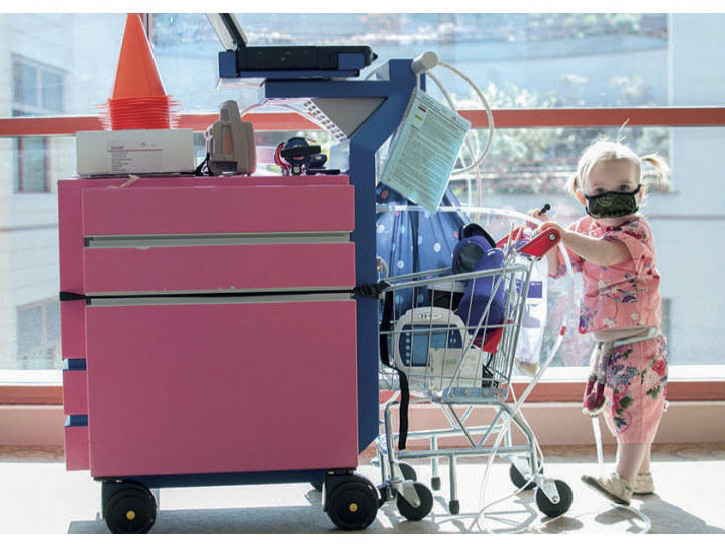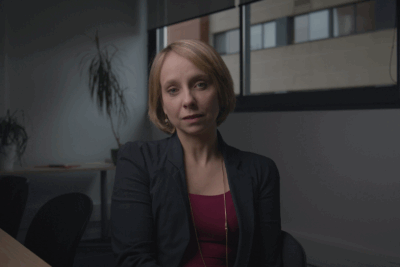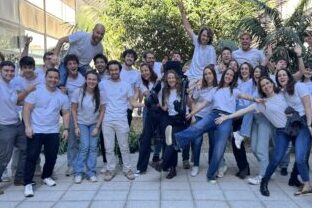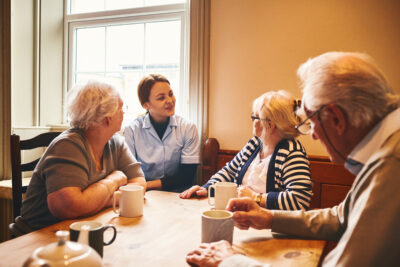9th July 2019
Q&A with Dr. Carina Benstöm, from the RWTH Aachen University Hospital on the MACH project
Dr. Carina Benstöm, from the RWTH Aachen University Hospital, shares the latest activities of the MACH project in an interview with EIT Health Germany.
Children in end-stage heart failures awaiting transplants suffer more than adults due to the shortage of donor organs. Furthermore, the lack of miniaturised heart assist devices results in children being constantly detained in intensive care wards.

Q: What are the objectives of the EIT Health Innovation Project MACH?
A: The main goal of the EIT Health project MACH is the CE certification and market entry of the new EXCOR® Active driving unit, which will shortly be introduced to the market. It will revolutionise how we perceive mechanical circulatory support therapy in the paediatric population. The previous model (dimensions (B x H x T) = 46 x 95 x 73 cm; weight = 93 kg, power of battery unit = 30 min) was only approved for in-hospital therapy and the size and battery life of the stationary driving unit Ikus prohibited independence and mobility. With the new EXCOR® Active, children will no longer be forced to live their lives in a hospital bed with unimaginable limitations. We are now able to present the prototype of the new driver. The new driving unit EXCOR® Active will be approximately knee-high and manoeuvrable by the child itself.
Q: What have been the latest activities in the past years?
A: While the first year created the necessary structures and networks, the second year of the project was mainly knowledge generating:
Within the experimental bundle, tests have taken up speed and were systematically put to the test. In a parallel setting of both human and animal blood testing, the effects of the alternative pressure curve induced by the new driver unit were analysed in regard to haemocompatibility to shear stress and activation of the coagulation cascade.
In the educational bundle, the programme contents were defined and structured together with the involved staff members. Work to build the educational platform for healthcare professionals and the training of people in paediatric mechanical circulatory support was initiated and will be continued during the last year of the action. In addition, focus group interviews were undertaken to implement feedback from former patients and their families/care givers in the implementation process of the new driver. So far no evidence-based, best-practice guidelines on transitioning to outpatient care in children supported with mechanical circulation is in place. In light of the soon-to-be introduced EXCOR® Active, there is a need to develop such a guideline, which incorporates both the patients’ and their families’ point of view and the healthcare professionalss and manufacturers’ perspective to prepare for a time when the driving unit is no longer a limiting factor. The guideline development process was started in 2017 and EIT Health MACH will seek international participation to establish, implement and evaluate a guideline for outpatient management for children supported with mechanical circulatory support in the final year of this action.
Q: What will be one of the main outputs of the final year of the project?
A: One of the main outputs of the final year of the EIT Health MACH action will be the release of the educational platform. This platform offers educational content not only to healthcare professionals (all specialties and areas of expertise) in an international setting, but it also offers educational material for patients, their families and relatives and caregivers. Beyond the initial duration of the EIT Health MACH project the company Berlin Heart will run this platform. To enable life-long learning, the content of the educational platform will be updated continuously from 2019 onwards. This impact can be measured transparently by analysing data on absolute number of clicks, videos assessed, downloaded teaching content etc.
In addition, the first prototype was presented during international conferences, the project received the Ospedale Pediatrico Bambino Gesù Young Investigator Award 2017 for our publication “Mobility, independence and special care needs: issues to consider in children supported with the EXCOR® paediatric ventricular assist device and stationary driving unit Ikus”.
Q: What are some important lessons learned from 2017?
A: These are some important lessons learned from 2017:
For the educational bundle, we experienced first hand how vital an interdisciplinary approach and different viewpoints can be when attempting to implement “change”. For our workpackages “Educational material development” and “Nursing strategy – training of staff for ambulatory setting” it became apparent instantly how the team would only be able to achieve their goals when all professions would work together closely taking all different view points into account (e.g. cardiac surgeons, anaesthesiologists, cardiologists, intensivists, psychologists, transplant nurses, VAD nurses, PICU nurses, ward nurses, VAD coordinators, dieticians, occupational therapists, speech and language therapists, physiotherapists, play teams, social workers, teachers, researchers and guideline developers). We met the challenges that the new driver and its implementation as well as the proposed clinical guideline will adress all influencing factors on medical stability: end-organ impairments, coagulation issues, nutritional issues, cannula related infections and discomfort, neurorehabilitation, and respiratory support.
The most important lesson learned in 2017 is how vital and essential patient participation and feedback is for any type of health research. We conducted semi-structured interviews with families of children who have received a transplant after VAD therapy with the old Ikus. Observations were conducted with families and patients currently living on VAD awaiting a transplant. The experience of living on VAD in the hospital was one of fear, worry and coming to terms with having a child in heart failure who needs a new heart. The idea of their worst fear (a child dying) happening to another family in order for their child to survive was also a difficult concept for some families to deal with. Many of the families were happy to take on some of the caring responsibilities for their children, but this was often limited to washing and medications in the majority of cases. While some parents of children on the Berlin Heart did check the tubes for blood clots, they would not want the sole responsibility of this, and were happy to accept help from the nurses. There were recall issues for many of the children. This was due in many respects, to their age at the time of the transplant and the length of time that has since passed. Of the children that were involved in an interview, their discussions of their experience in hospitals mainly focused on boredom and pain.
In terms of living off the ward, families expressed fear and worries. Private family time and the ability to just be yourself, was noted of course; however, when weighed up against their fear, parents had a variety of questions and concerns. Here, a parallel was drawn to first premature babies who receive kangaroo care in the 1990’s – parents had the biggest fears and worries to take their tiny babies out of the “secure” environment of the incubator. For the project, the results of the focus group interviews will directly feed back into our guideline development process, they will become an important aspect to consider when implementing outpatient care for these unique patients.
Learn more about the EIT Health MACH project.
Click here to visit the educational platform.
Project partners: RWTH Aachen University, Newcastle Upon Tyne University, Berlin Heart
Project coordinator: Dr. Carina Benstöm, RWTH Aachen University, cbenstoem@ukaachen.de
EIT Health and the EDIT-B consortium transform bipolar disorder diagnosis with groundbreaking blood test

Discover this life-changing project today.
Three EIT Health innovators nominated for EIT Awards

Meet our three EIT Award nominees.
Hospital Clínic study reinforces patient participation as key to digital health innovation

New work published in Journal of Medical Internet Research.